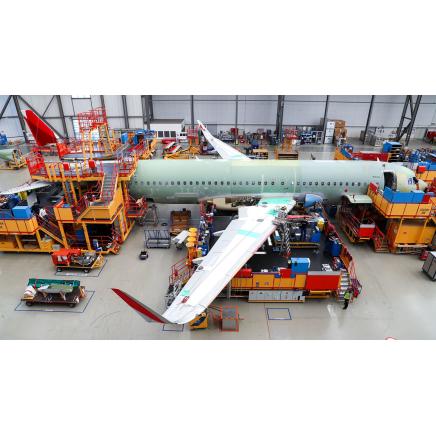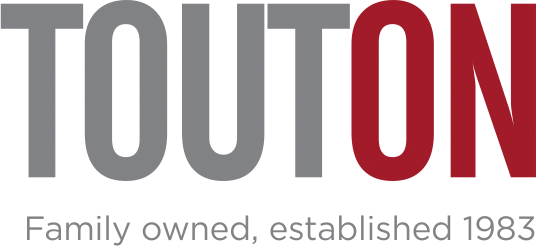French Winemakers Feel the Tariff Pain

French Winemakers Feel the Tariff Pain
While U.S. wine merchants lobby to stop 100 percent tariffs on European wines, French winegrowers are already suffering from the 25 percent duties imposed last year.
article originally featured in Wine Spectator Feb 11th 2020
American wine merchants, importers, distributors, restaurateurs and consumers are fighting a two-front war when it comes to the trade battle between the United States and the European Union over airplane manufacturing subsidies. On one front, they are desperately lobbying the Trump Administration not to impose 100 percent tariffs on all European wines. A decision could come later this week.On the other front, they're already struggling with the 25 percent tariffs the U.S. imposed on still wines with less than 14 percent alcohol from France, Spain and Germany last October. Sales are down and some wines are not being restocked. In France, the pain is being felt as well, with reports of falling exports and winery bankruptcies. There is also potent frustration with politicians on all sides. "In six months, the American market will be dead for us," said Bernard Farges, president of the leading Bordeaux trade group CIVB.
Sudden impact: When the tariffs were announced in October, many French wineries and their American importer partners scrambled to contain the damage, swallowing some of the cost of the tariffs. But many could not afford to do so. And the impact was immediate. Wine exports to the U.S. have plummeted 33 percent since the tariffs were imposed, according to the French federation of wine and spirit exporters (FEVS). Cédric Coubris, vice president of the national syndicate of independent vignerons, said 600 of their members had reported losses totaling nearly $22 million by the end of 2019. They have 7,000 members. "We anticipate a loss of [$110 million] in 2020." He added that there have already been bankruptcies.
Prior to the tariffs, Bordeaux's business in America was booming, enjoying its best performance in 30 years. From November 2018 to November 2019, Bordeaux exported 2.2 million cases worth $325 million. That's 30 percent in value and 21 percent in volume of all French appellation wine sent to the U.S. But exports plummeted 46 percent in value and 24 percent in volume in November alone. Négociant Georges Haushalter said the losses are colossal. "The situation is very critical," he said. "The U.S. market is the second largest export market for Bordeaux wines. Our business has stopped. We have containers ready to leave and clients are telling us to delay the shipment."
The impact is being felt throughout France. "The first effect is a reduction of margin for all actors of the trade," said Jean-Frédéric Hugel, the 12th generation to run Famille Hugel in Alsace. "We are compensating for part of the extra cost for the consumer, the objective being to split the cost one-third for us, one-third for the importer, one-third for the consumer." In addition to immediate cash-flow crisis, the French fear losing shelf space they spent decades fighting for. France has steadily increased their wine exports to the U.S. over the last decade. In 2018, it was worth $3.5 billion, with a respectable 5 percent growth. Losing their slice of the U.S. market would cost jobs and businesses in France. FEVS estimates 4,000 jobs in export firms alone are in peril and that it would take a decade to regain France's position on American shop shelves and wine lists. "One can be replaced easily in the American market," said Haushalter. "The reconquest will be long, costly and difficult."
Asking for help: To add to the French trade's woes, the trade war coincides with a decline in sales to mainland China, where Australians and Chileans enjoy a tax advantage through a free trade agreement, as well as political unrest in Hong Kong and the uncertainty around Brexit. To reduce the damage, winemakers and merchants are lobbying both the French government and the E.U. The wine trade is demanding $327 million in compensation from the government for what they say was a political decision to subsidize Airbus. "It's definitely the fault of the French government, which chose to subsidize Airbus," said Farges. "The government should assume [responsibility for] its industrial choices."
The French wine trade is doubly outraged that it is paying a heavier price than the aeronautics industry. "The U.S. only puts a 10 percent tariff on European aircraft but hits French wine with a 25 percent tariff," said Farges. Paris officials passed the buck to Brussels, telling vignerons to lobby the E.U., but the E.U. commission has turned a deaf ear so far. "Today, we have been completely abandoned," said French Senator Nathalie Delattre, who represents Bordeaux and is also co-president of a national association for elected officials representing wine regions.
"The American market is slowing down rapidly, even stopping for some exporters," said Farges, following a crisis meeting with E.U. parliamentarians representing the region. "We have contact and relationships with various ministers, but nothing happens." The proposed compensation package from the French government is meant to mitigate some of the losses. The wine trade is also requesting assistance in opening up new foreign markets.
"The U.S. being our No. 1 market, it would definitely help us, but more responsible political choices would be better," said Hugel, who admits to feeling cynical. "It feels like a huge waste of time, money and confidence. It seems like our leaders forgot how to negotiate."


